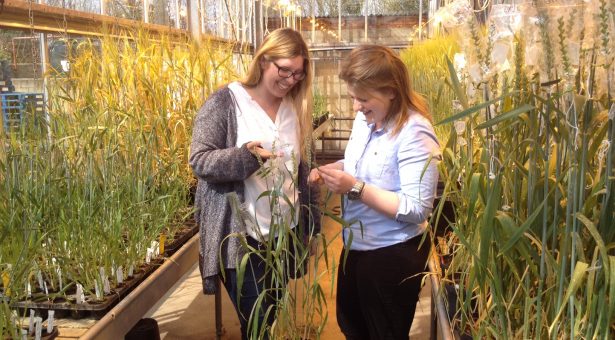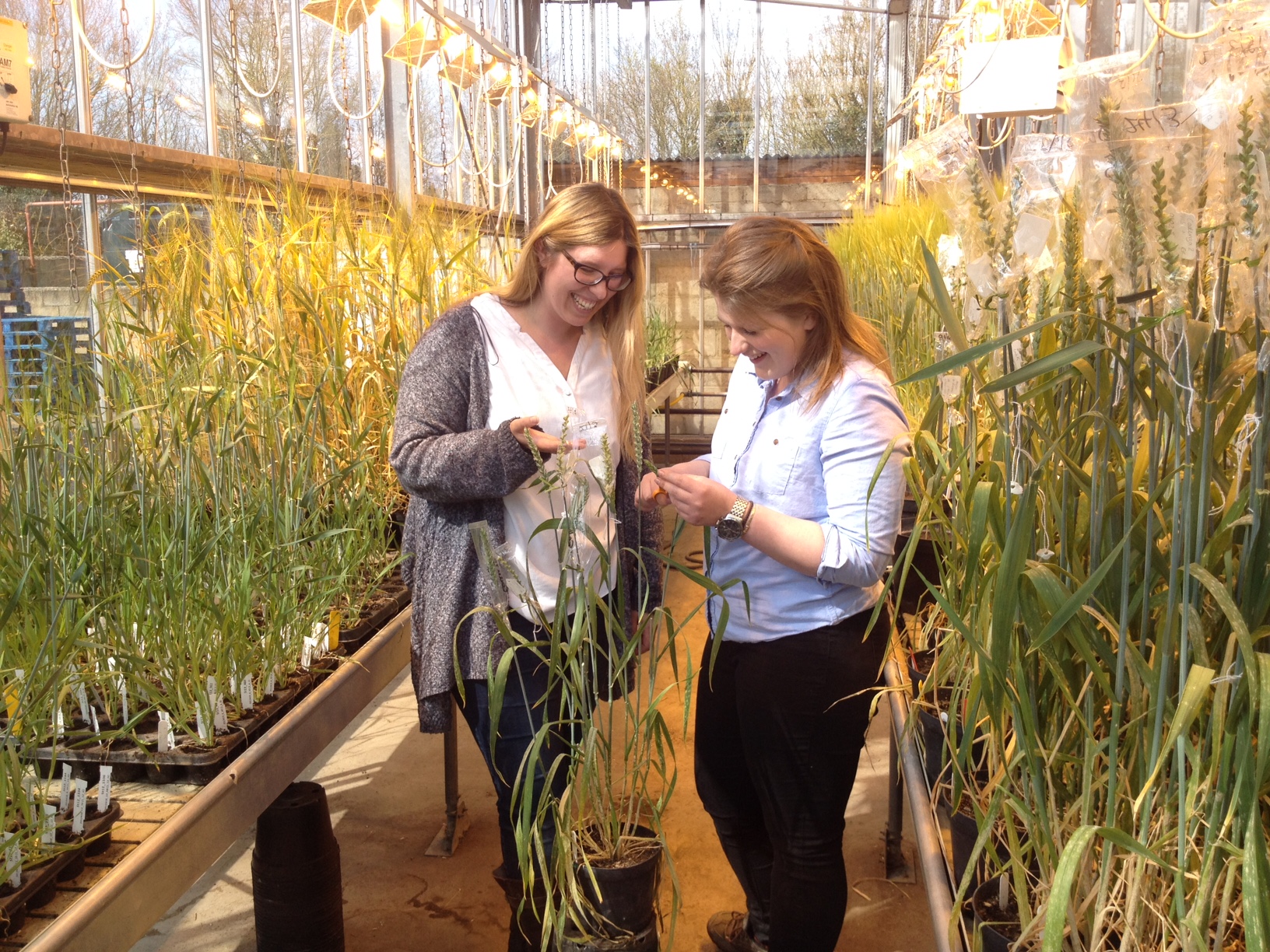Eleanor considers her future career after internship with KWS

Eleanor considers her future career after internship with KWS
Eleanor Fearnley wanted to see if plant breeding could be something she wished to pursue after her PhD and so used her internship to explore this. Ellie spent her 12 week internship at KWS Ltd UK, a key supplier of innovative new varieties to UK agriculture, based in Thriplow near Cambridge. She also knew that KWS worked closely with academia and was intrigued to see how collaboration worked between industries.

The majority of the placement was based on the wheat crossing programme. Two approaches are taken to produce new varieties of wheat: single seed descent (SSD) and double haploid (DH). For the crossing programmes, Ellie’s responsibilities included emasculating and pollinating. It was important that she was a quick, efficient team member to aid in the next generation of plant varieties and Ellie became an integrated member of the team to achieve results.
The other part of the internship was based in the research and development (R&D) team. This work involved numerous tasks including sowing, reading papers, genotyping, lab quality testing, harvesting plants for DH, microscopy and working in near isogenic line (NIL) and TILLING projects. Ellie inoculated spreader plants with rust isolates for field tests and was involved from the initial inoculation to the in-field mass spreading. Other field jobs were carried out to help protect plants from abiotic stresses.
Ellie felt that the internship helped her improve her team working skills as well as her ability to work independently as she was given the responsibility to make decisions about which crosses to complete. “I was trusted to be independent to complete tasks, and if there was a problem I had to use my initiative to solve it”, reflects Ellie. This also helped increase her self-confidence and her assertiveness, which is something she plans to carry on in her PhD.
In terms of Ellie’s future career, the placement gave her insight into industry and the possible career paths one can take after leaving academia. Ellie found that her placement has renewed her motivation to complete her PhD and the freedom that curiosity driven research facilitates; “I feel as though it has given me a fresh outlook on how I view my PhD” says Ellie. “I have learnt that although plant breeding is not something I want to pursue in my career, I would like to stay within the agriculture sector”. The placement also gave Ellie the opportunity to make contacts outside of academia which are useful in the longer term.
As well as these benefits, Ellie broadened her plant breeding knowledge and gained real insight into everyday plant breeding activities within a successful breeding company. The internship also improved her ability to analyse and evaluate research papers with a very direct focus. This broadened her own subject knowledge base as she was researching topic areas she was not familiar with.
For students in the process of planning their internship Ellie recommends that you visit the placement company before starting the internship as this will help you can make an informed decision on whether it’s the right placement for you. She also stresses the importance of clarifying your daily roles before you begin.
